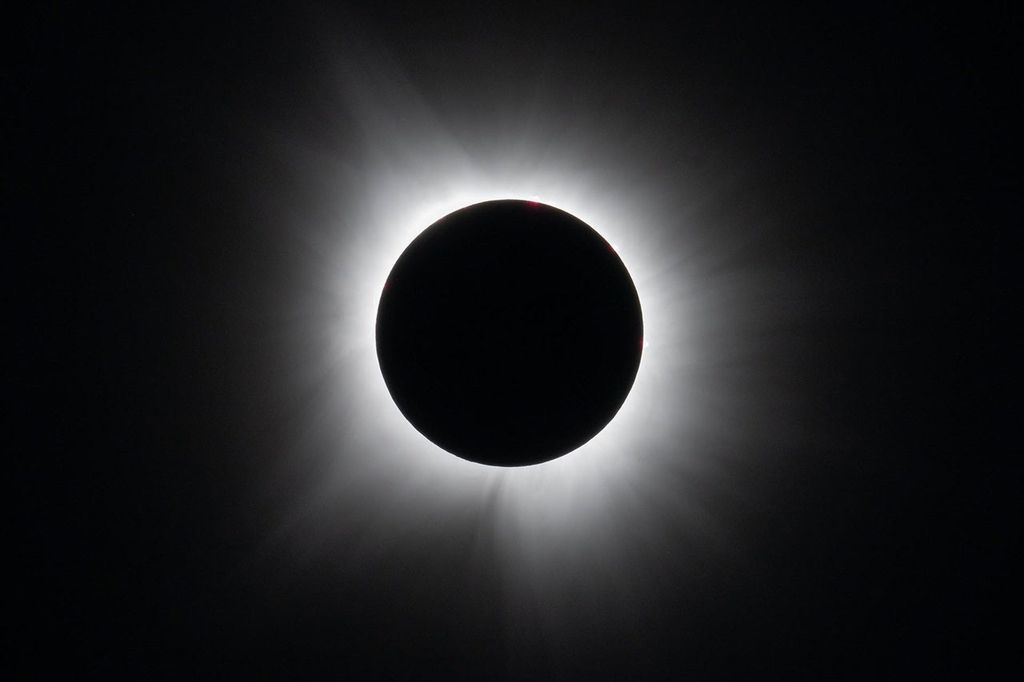Meet the Team
People of Roman
Many skilled people contribute to the Roman Space Telescope, from its creating initial design to building the spacecraft and working towards launch and future science operations. Meet a few of the individuals who are part of the Roman Team.
Management
Meet the people who are leading Roman’s development.
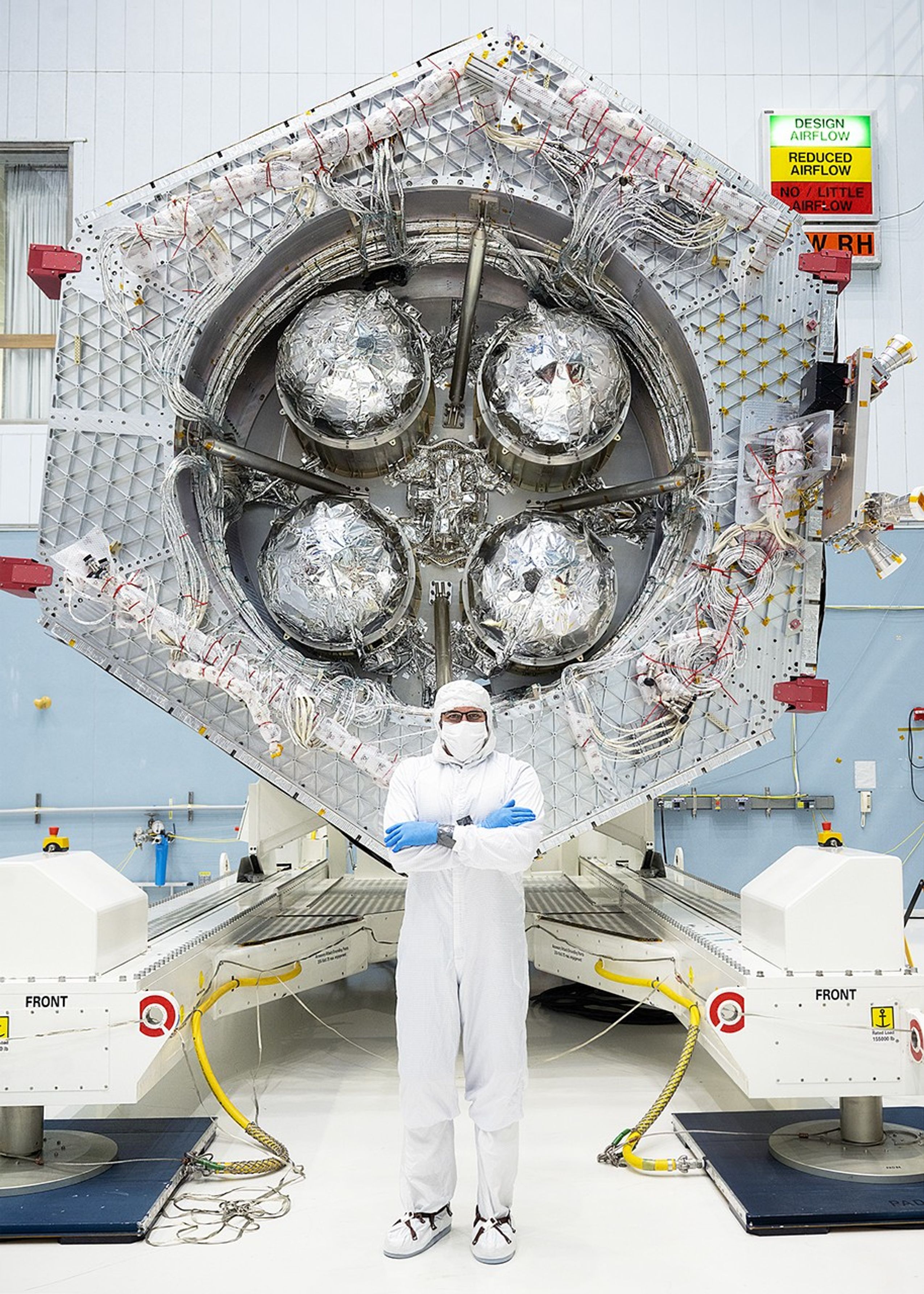
Mike Drury: A 40-Year Legacy of Precision
“As humans, we want to discover new things and see things. That’s what keeps me coming back — the thought of discovery and space flight. Every test you learn more and more about other disciplines.”
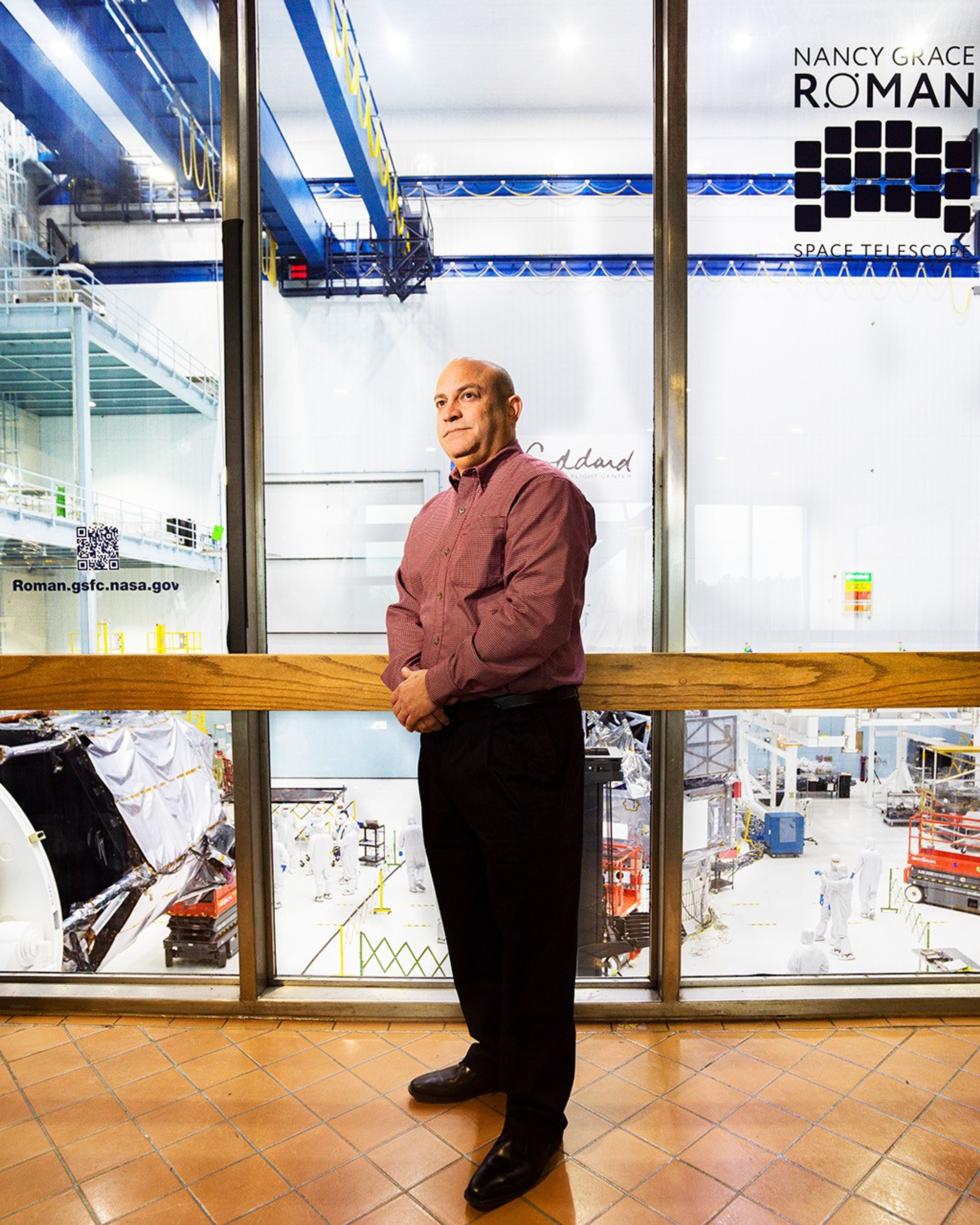
Jamie Dunn: A Mission Maestro Working Behind the Scenes
“In project management, you’re there to keep the train on the tracks and get to the station on time. I focus heavily on programmatics, working closely with mission systems and project science. When you have a healthy balance between them all like we do, it's very successful.”
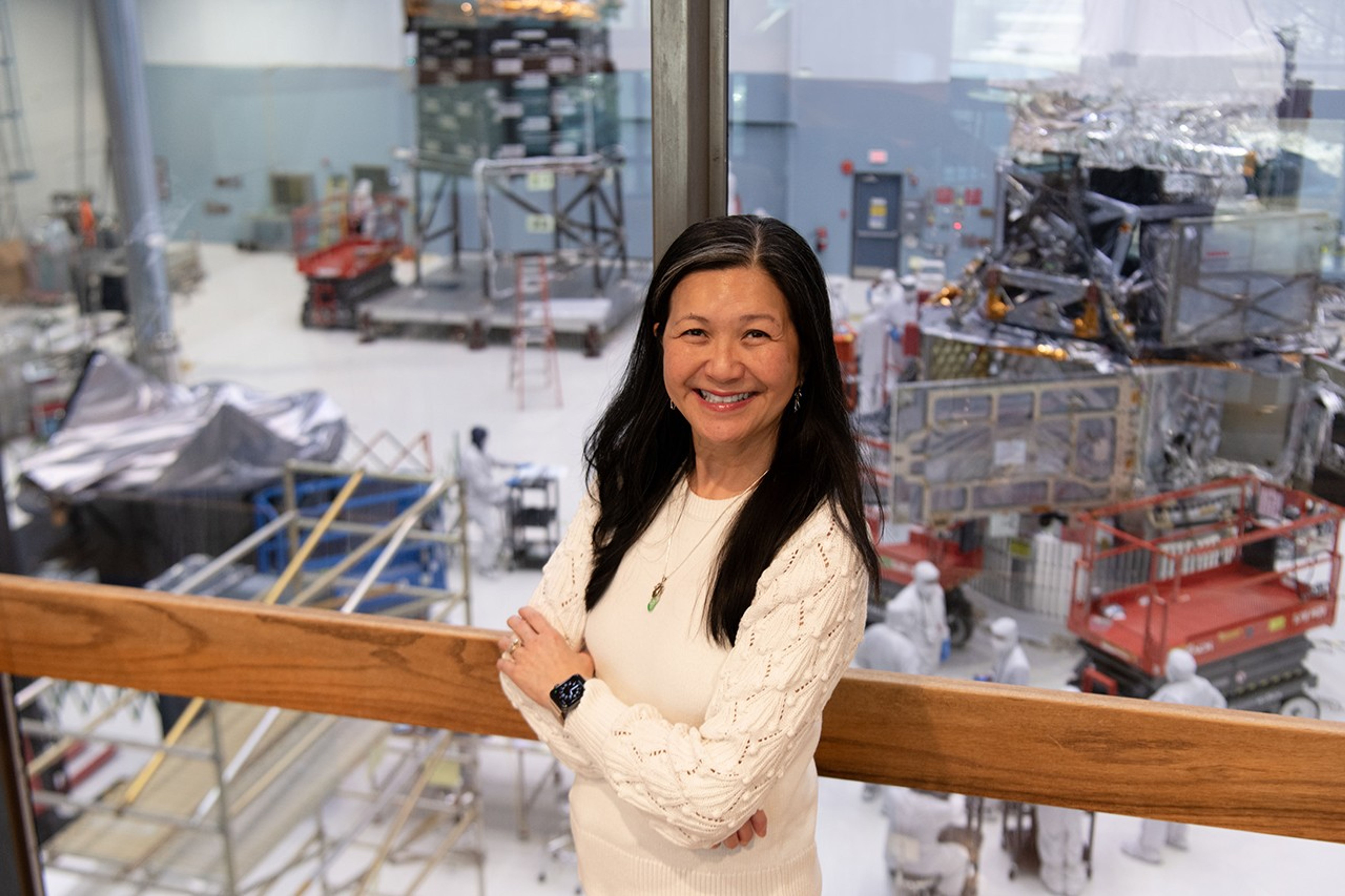
Hsiao Smith: 35 Years of Engineering Success
“It’s a privilege to manage and coordinate Roman hardware from the subsystem level to ensure that once they all work individually, they all function together as an observatory.”
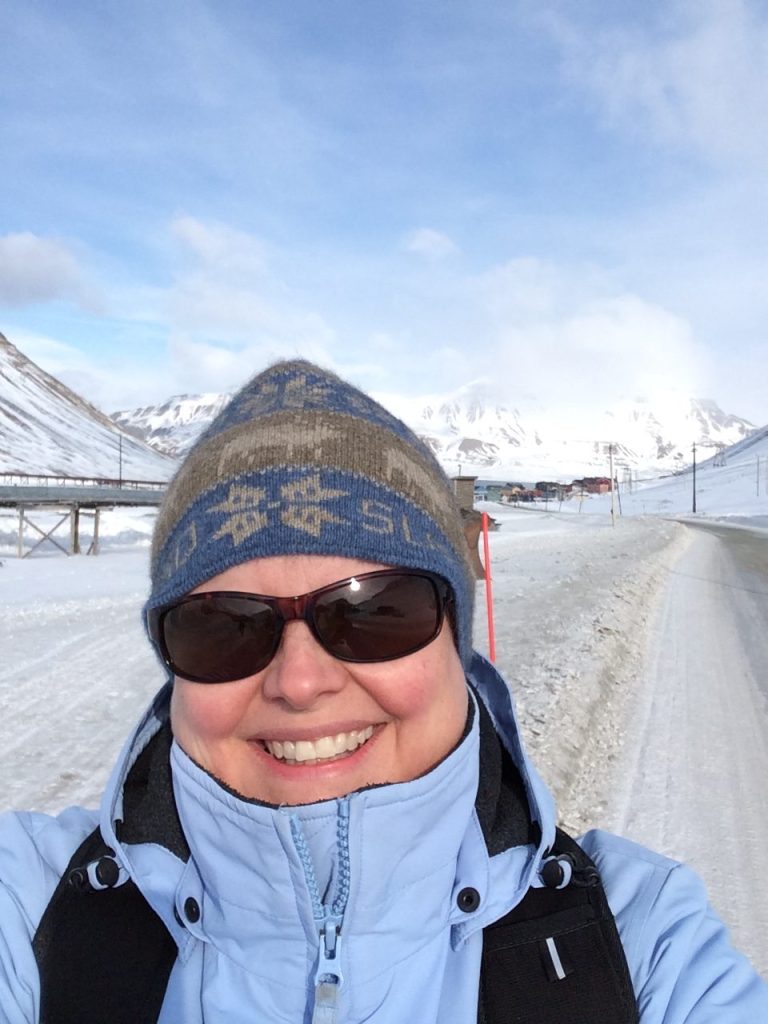
Jackie Townsend is Setting the Stage for Extraordinary Science
“I really like talking to kids who are not straight A students because my path was not typical. But it shows that when you find something you love and apply yourself, you can do anything.”
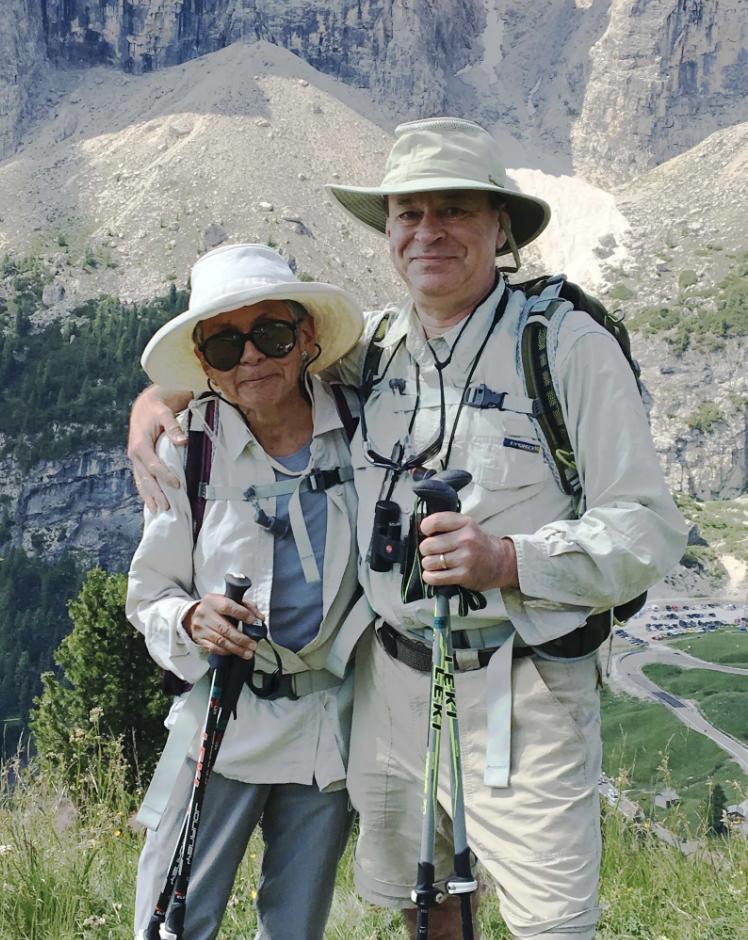
Jeffrey Kruk: Helping the World See the Big Picture in the Sky
“It is very rewarding to see all the pieces of a big project come together. As project scientist, I get to see this happen in real time.”
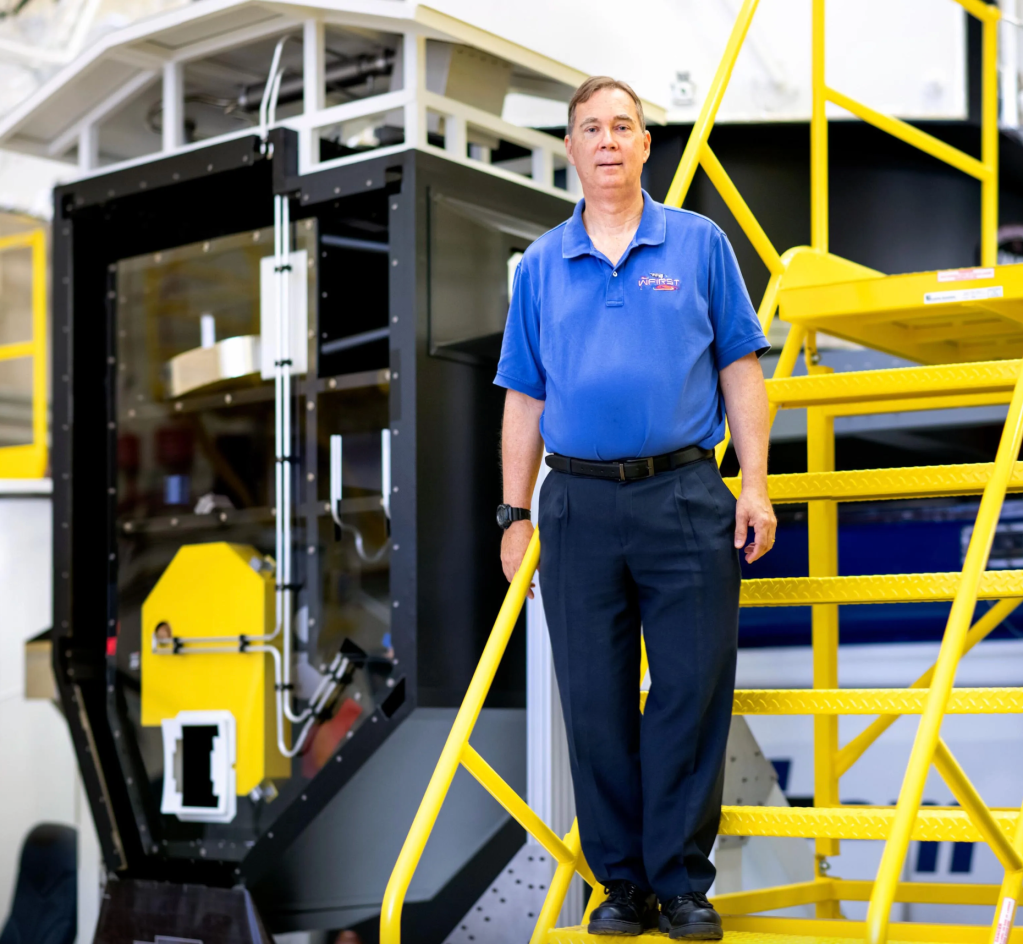
David Content Hopes to Answer the Big Questions with Roman
“Project managers have to see the big picture. I have always been a big picture guy. To me, that is the point of physics. I always want to see how what I am doing fits in the big picture.”
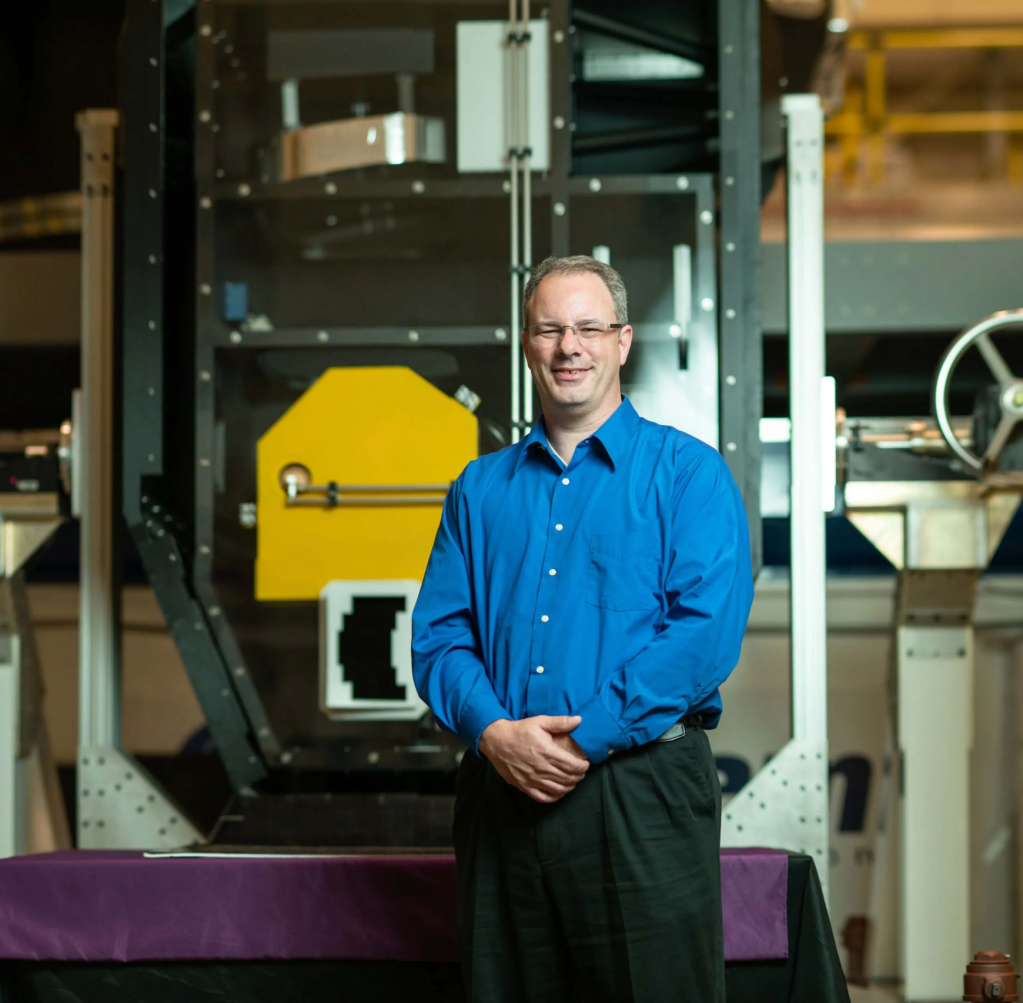
Jason Hylan, Observatory Manager for Roman, Inspires His Team to Dream Big
“[Roman] is a flagship mission and represents the pinnacle of our astrophysics missions in terms of scope and scale. The bigger the technical challenge that needs to be solved, the more exciting it is to me.”
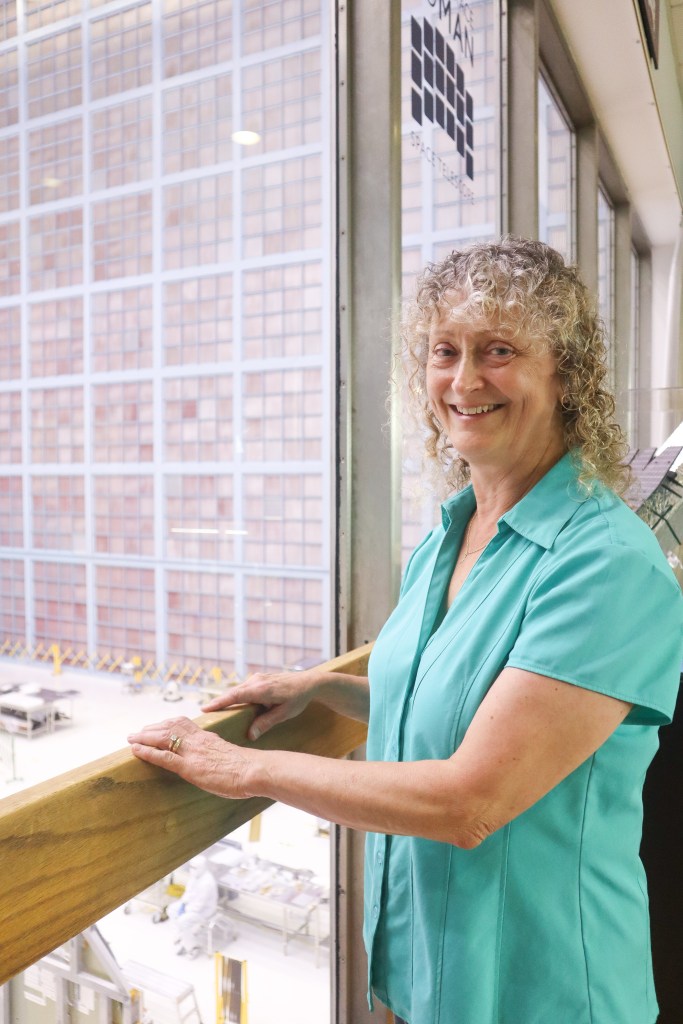
Mary Walker Manages the Instrument that Will Unveil the Cosmos
“I was good at science and math in high school and decided to study aerospace engineering in college. People would always ask why I didn’t want to become a teacher instead. And plenty of people said, ‘Well you’re a girl, you’ll never do it,’ but I took that as a challenge.”
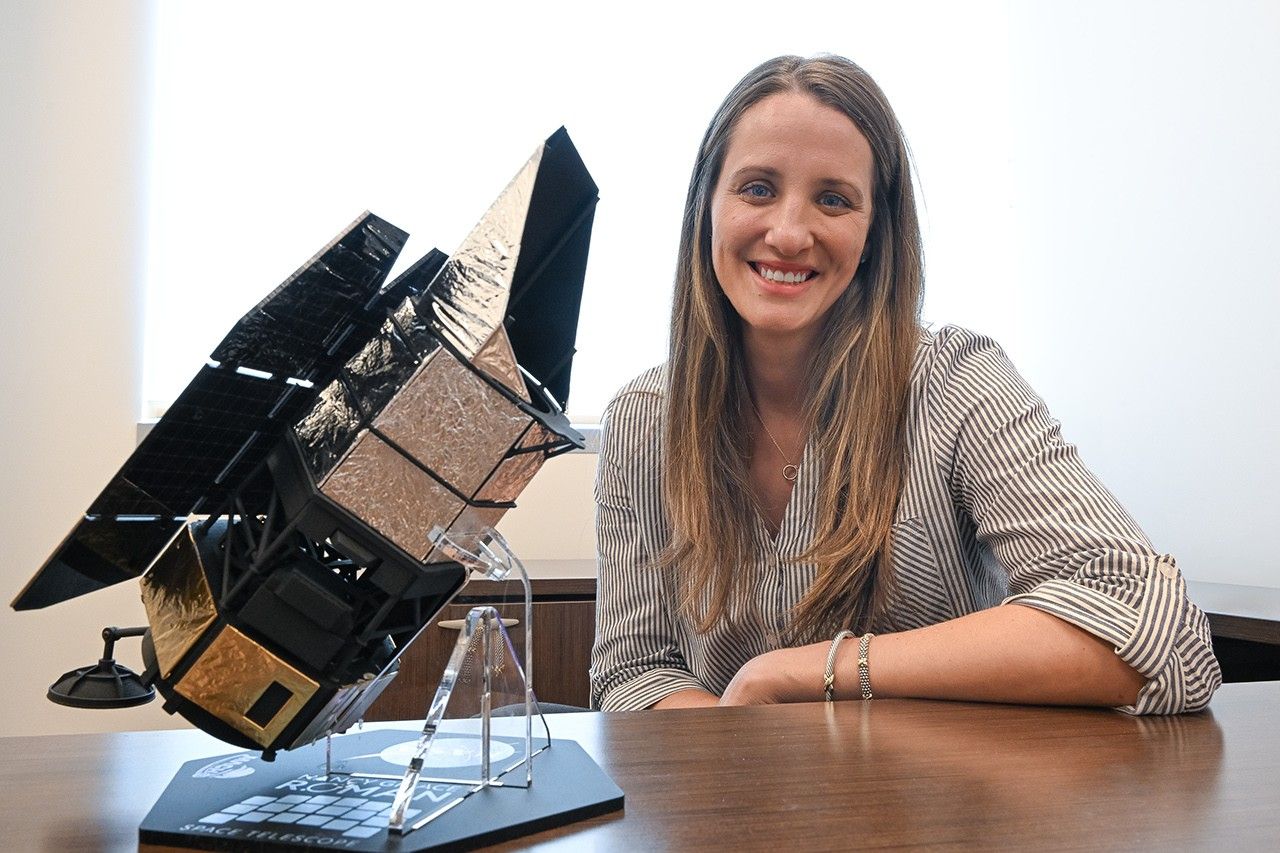
Katie Bisci: Resourcing for Big Science
“The main goal in the job is programmatics: We need to understand and help along the technical parts of the mission, while also supporting cost and schedule control. I try to make sure that I partner with our engineers to understand the technical part of Roman as much as possible.”
Science
Meet some of the scientists who are venturing into new territories of science with the Roman Space Telescope.

Joshua Schlieder: Feet on the Ground, Head in the Stars
"I study red dwarf stars and the exoplanets that orbit them. I hope someday that the astrophysics community will detect enough planets around red dwarf stars to truly understand the population and disentangle how such small stars can form so many planets."
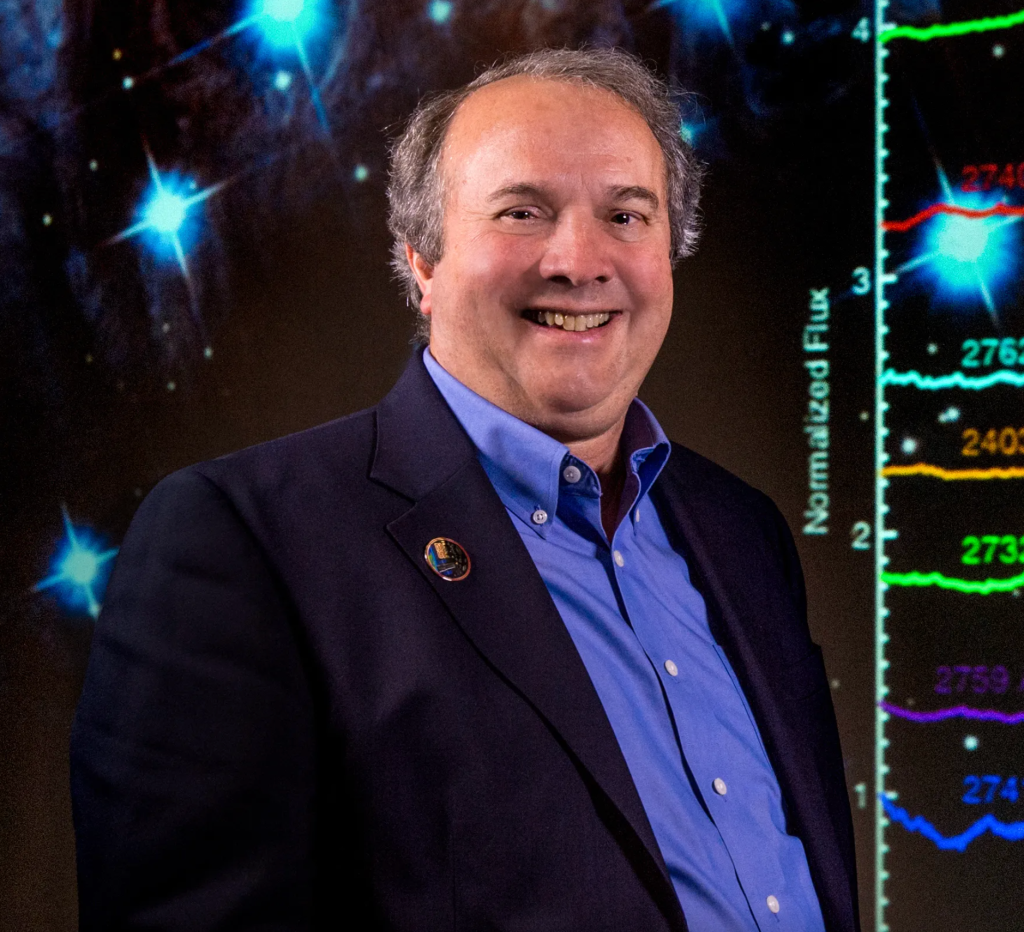
Ken Carpenter: Ensuring Top-Tier Science from Moon to Stars
“My experience in Hubble’s operations and ground systems led me to get involved with the same for Roman at a very early stage. I was involved in developing the early concepts for Roman and helping it get selected as an official NASA mission.”
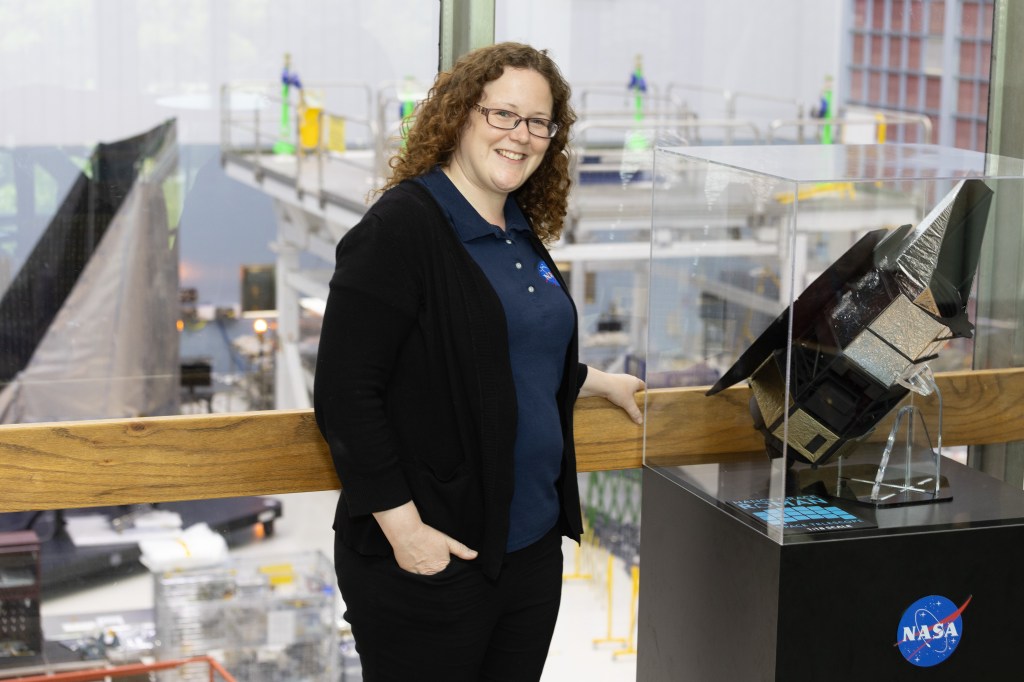
Rebekah Hounsell: Tracking Cosmic Light to Untangle the Universe’s Darkest Mysteries
“The Roman team I am leading is tasked with developing a pixels-to-cosmology pipeline for the analysis of supernova data. We will develop tools to aid the community in obtaining supernova lightcurves and prism spectra, which are precise enough to be used in testing various cosmological modes.”
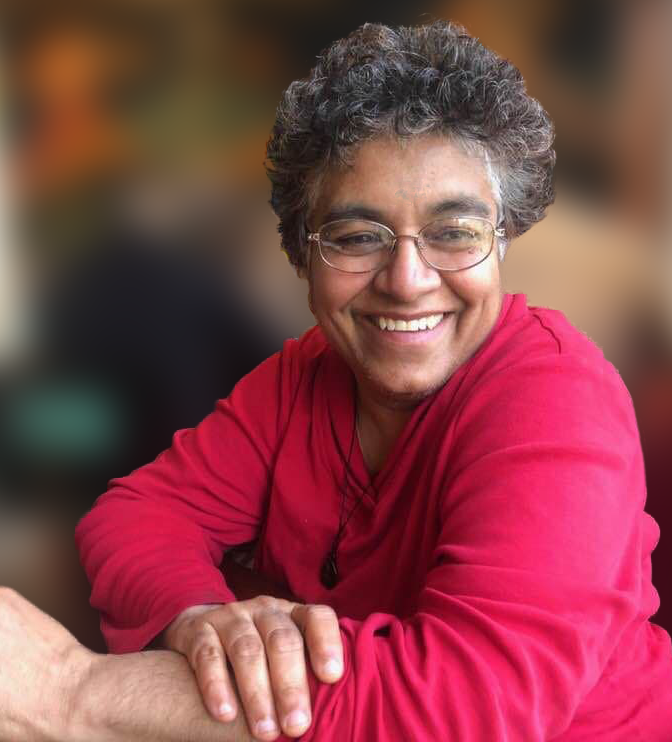
Sangeeta Malhotra: A Cosmic Detective
“I’m just thrilled when I think of what we learned from [Hubble] and how much we’ll build on it with Webb and Roman. It’s like learning to drive on a starter car and then later being able to drive a luxury car, especially if you were involved in improving the design.”
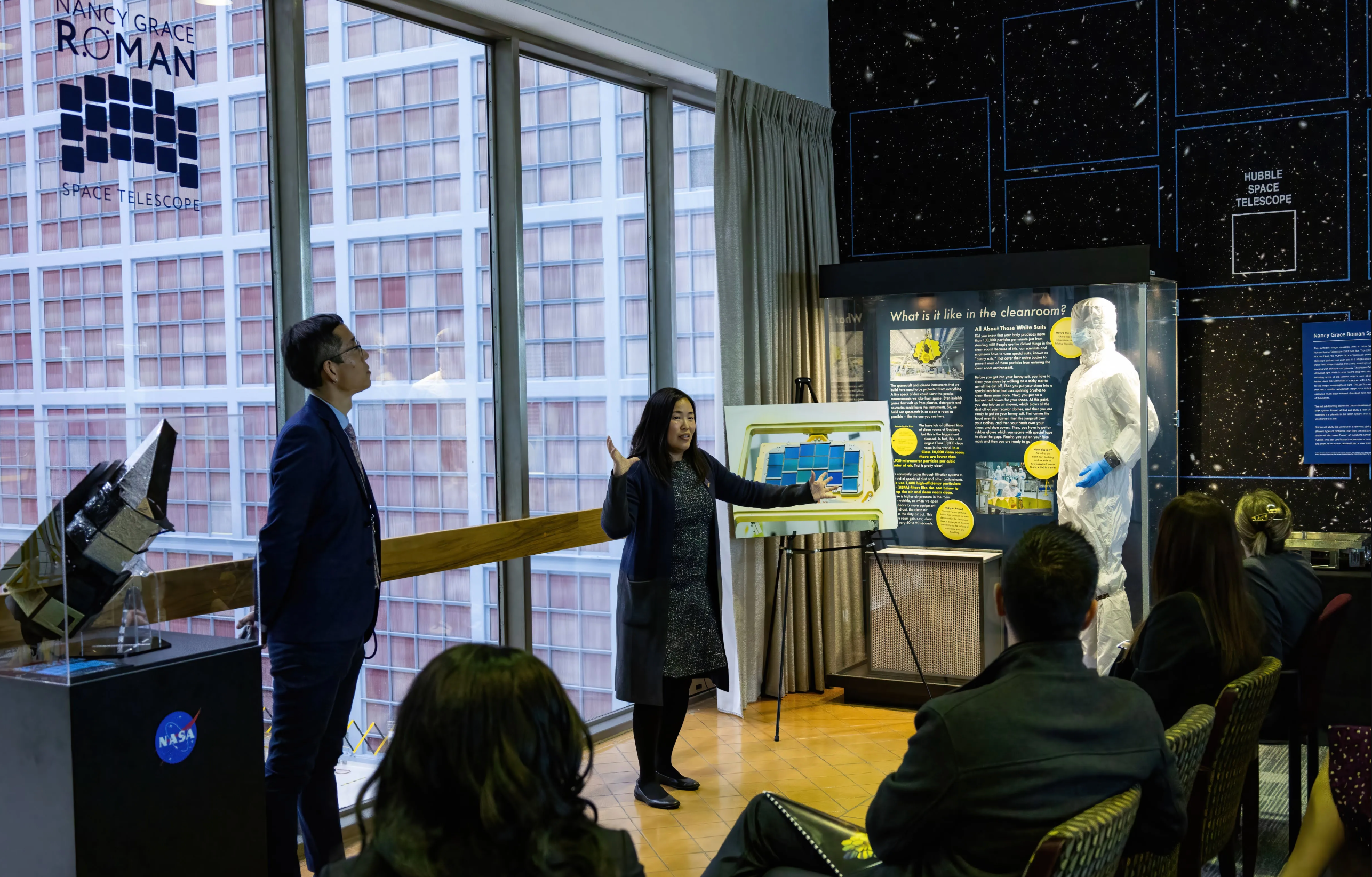
Ami Choi: Unraveling the Invisible Universe
“I’ve always been interested in exploring big unknown realms, and things that aren’t quite tangible. So I learned how to code, interpret data, and do spectroscopy. Now I use gravitational lensing to xplore dark matter, dark energy, and the large-scale structure of the universe.”
Engineering
Meet some of the engineers who are building the Roman Space Telescope.

Joshua Abel: Delivering Roman’s Optical Telescope Assembly On Time, On Target
"My goal is to deliver the assembly to the Roman observatory on time, within budget, and meeting all the technical requirements. I lead a small team of subject matter experts to review the vendor’s plans and help resolve any technical issues."

Glenn Bazemore: Professional Problem-Solver
"On Roman, I helped with a subsystem inside its Wide Field Instrument (WFI) called the simplified Relative Calibration System (sRCS). This sub-system will be used to help scientists accurately measure light output from cosmic entities like galaxies and stars."

Sanetra Bailey: The Brains Behind the Brains of the Roman Mission
"I am currently working on part of the telescope’s avionics subsystem as a Field-Programmable Gate Array (FPGA) Developer for the Multi-Channel Analog Card. This subsystem is like the brains of the spacecraft, driven by software to provide commands and controls."

Melissa Harris: Propelling Space Telescopes Toward Success
"I look forward to what I do every day, and I know it is going to have an impact way beyond my comprehension. The part I have in the Roman mission is going to get that telescope to where it needs to be and discover some amazing things."
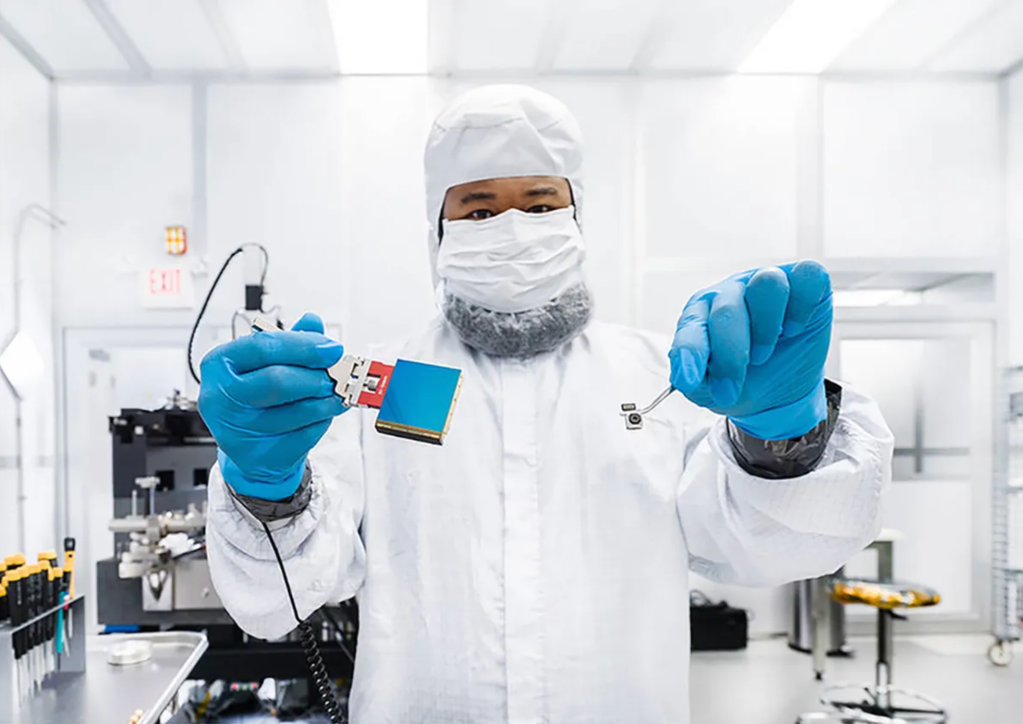
Gregory Mosby, Jr. connects us to faraway galaxies
"It’s exciting to work on developing new ways to solve problems whether it includes borrowing techniques from statistics, physics, or applied math."
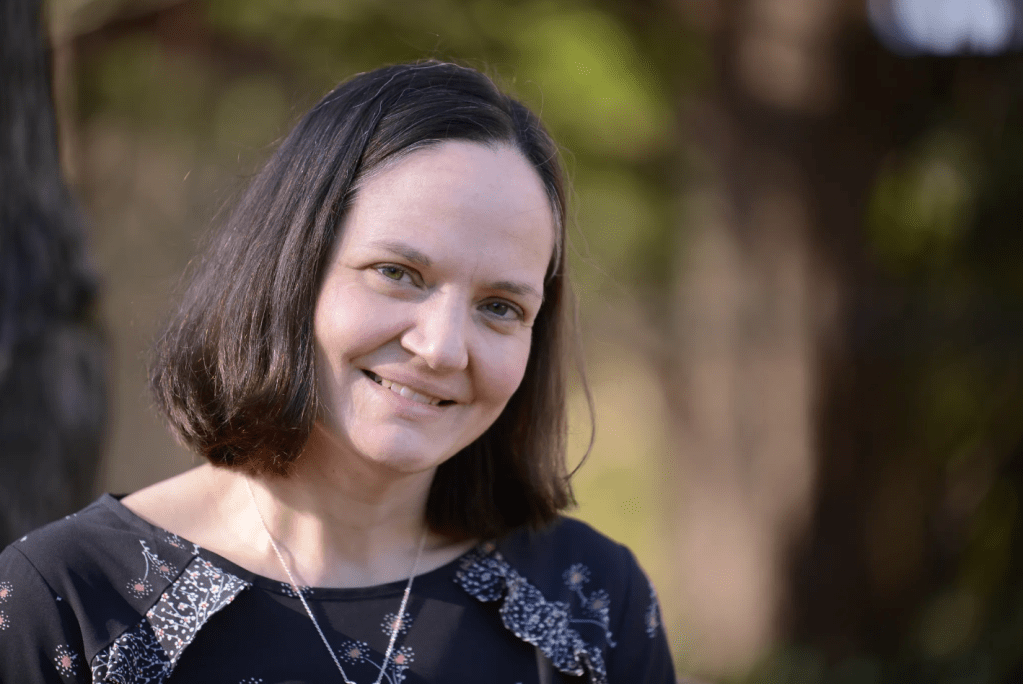
Melissa Vess: Triathlete and Roman Spacecraft Systems Engineer
"I look at the big picture of a mission on the engineering side. I am responsible for overseeing all the different subsystems that make up the spacecraft, making sure that all the puzzle pieces fit together."
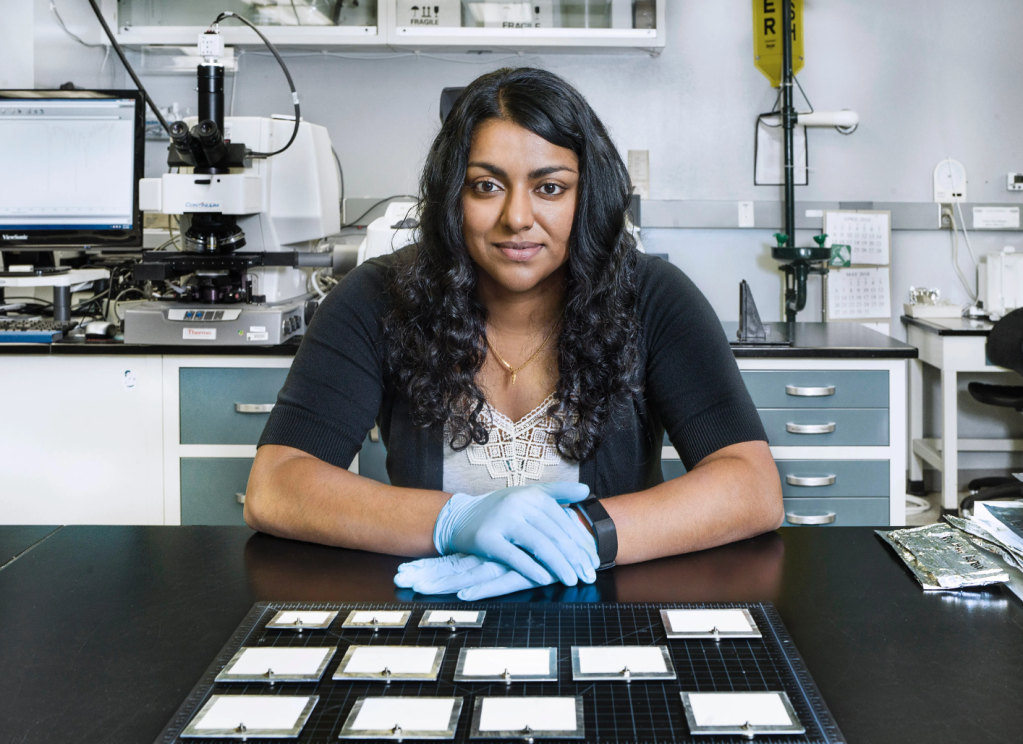
Nithin Abraham provides thermal coating expertise for NASA spacecraft
“Growing up, I did not know that I wanted to be an engineer. Now, I provide technical expertise on spacecraft thermal control coatings in support of satellites, instruments, and telescopes for NASA missions.”
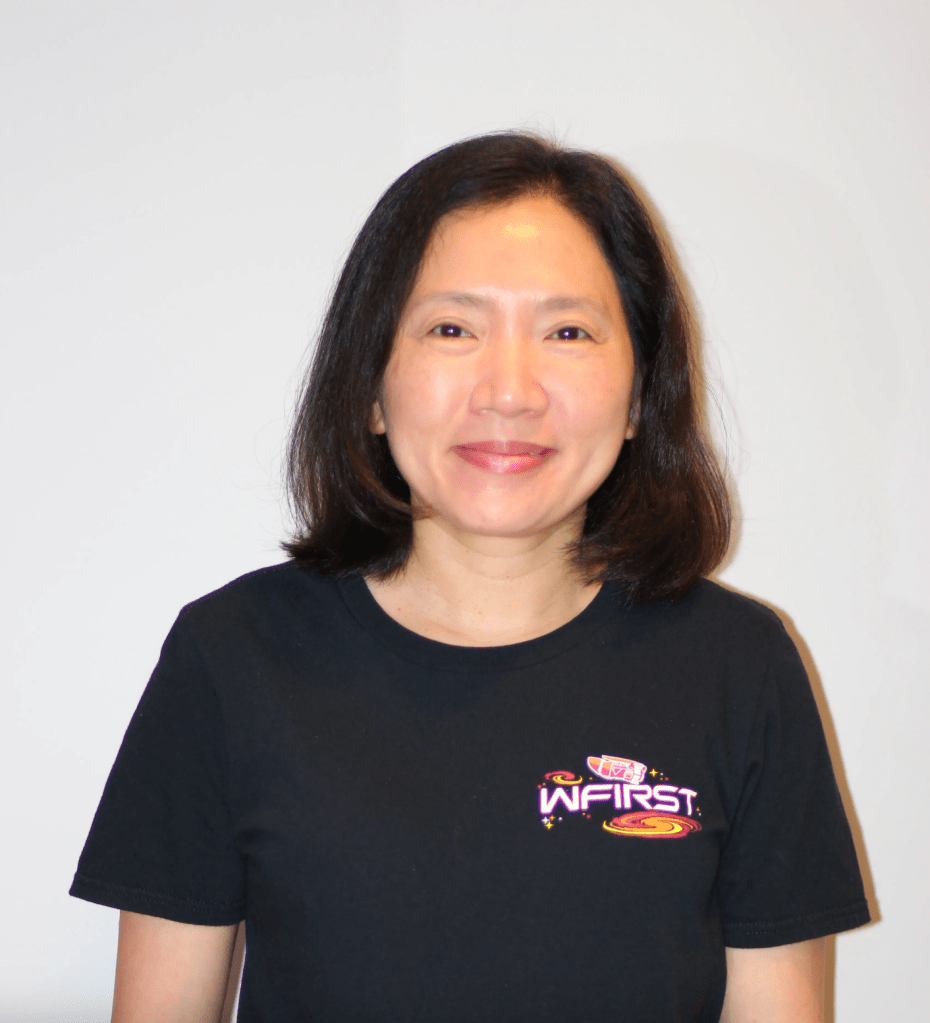
Alice Liu: Modeling Missions’ Jitters Before Flight
“I started as a project analyst. Over time, I became the lead analyst, the product development lead, the guidance and navigation controls systems engineer, the pointing system lead and now the integrated modeling lead for a NASA flagship mission, Roman.”
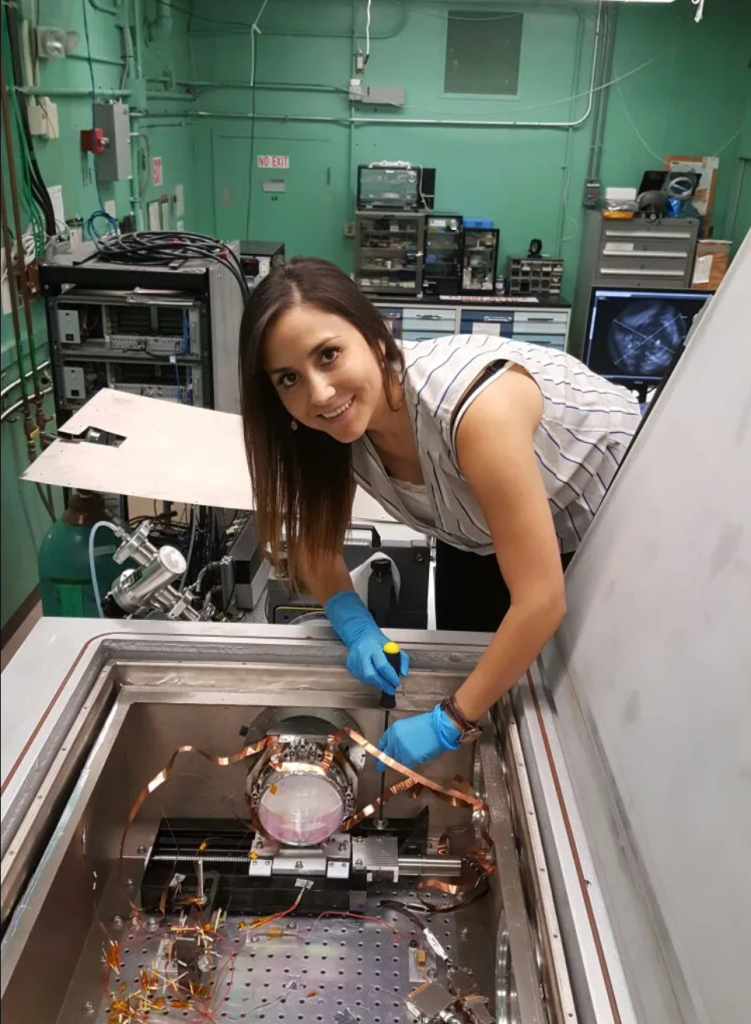
Margaret Dominguez Helps NASA Space Telescopes Open Their ‘Eyes’ to the Universe
“I was always curious and had a lot of questions and thought that physics helped me answer some of these questions. Now, we are building the grism, a slitless spectrograph, which will measure galaxy redshifts to study dark energy.”
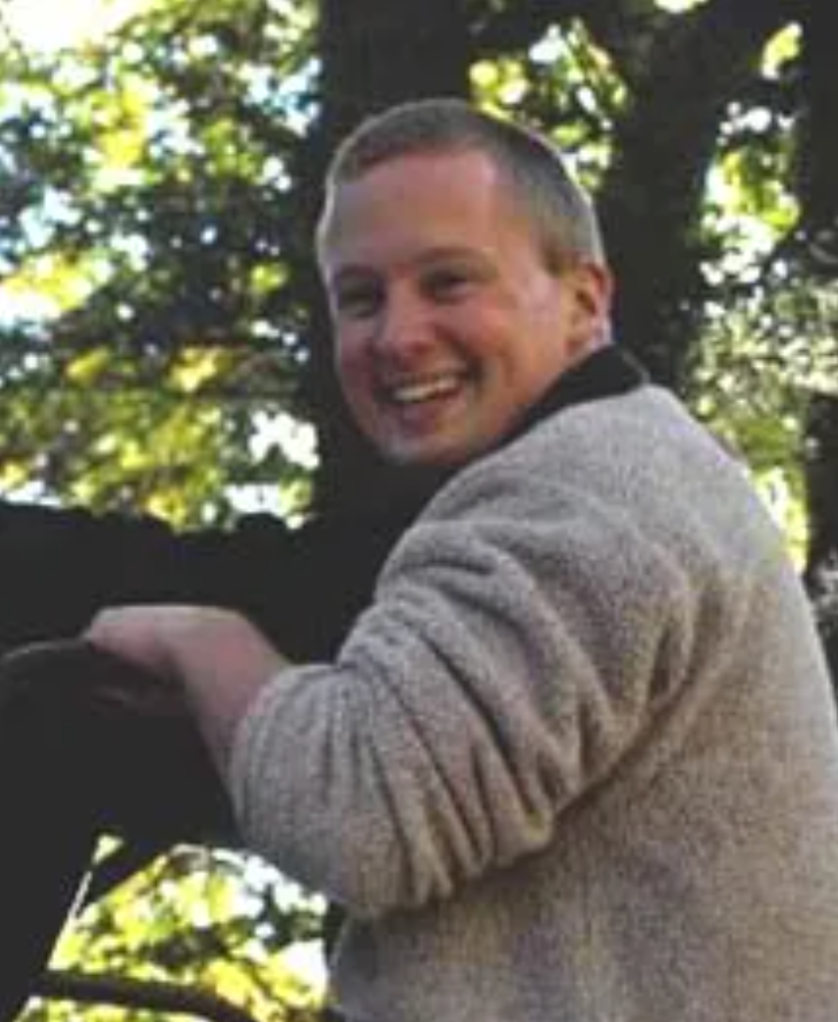
Matt Bolcar: Optical Engineer Who Helps the Upcoming Roman Space Telescope See
“I am a systems engineer in optics, making sure that all the pieces of the optical system work with each other and with the rest of the system, such as the thermal and mechanical systems.”
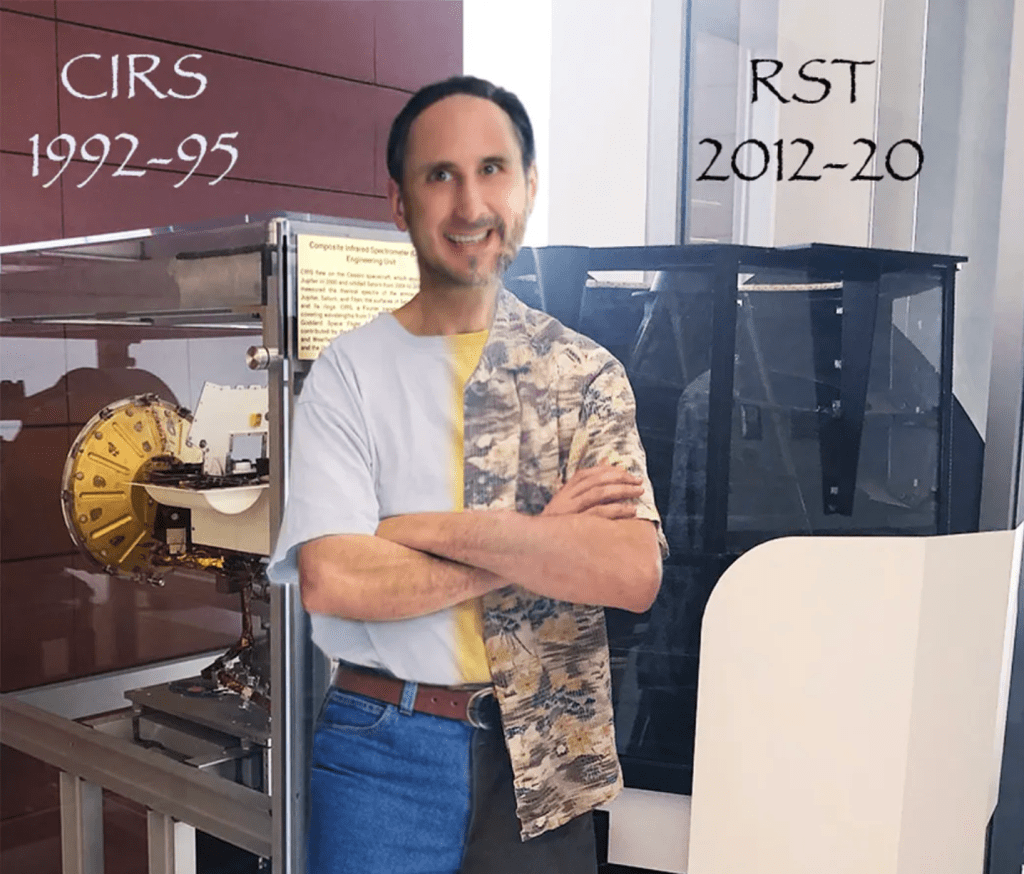
Bert Pasquale, Optical Designer of the Roman Space Telescope, Takes on Complex Problems
“My art informs my engineering, my engineering informs my art. The beauty of technical design and the technicality of my photographic style go hand-in-hand. Who I am is both encompassed by, and also reflected in, both.”
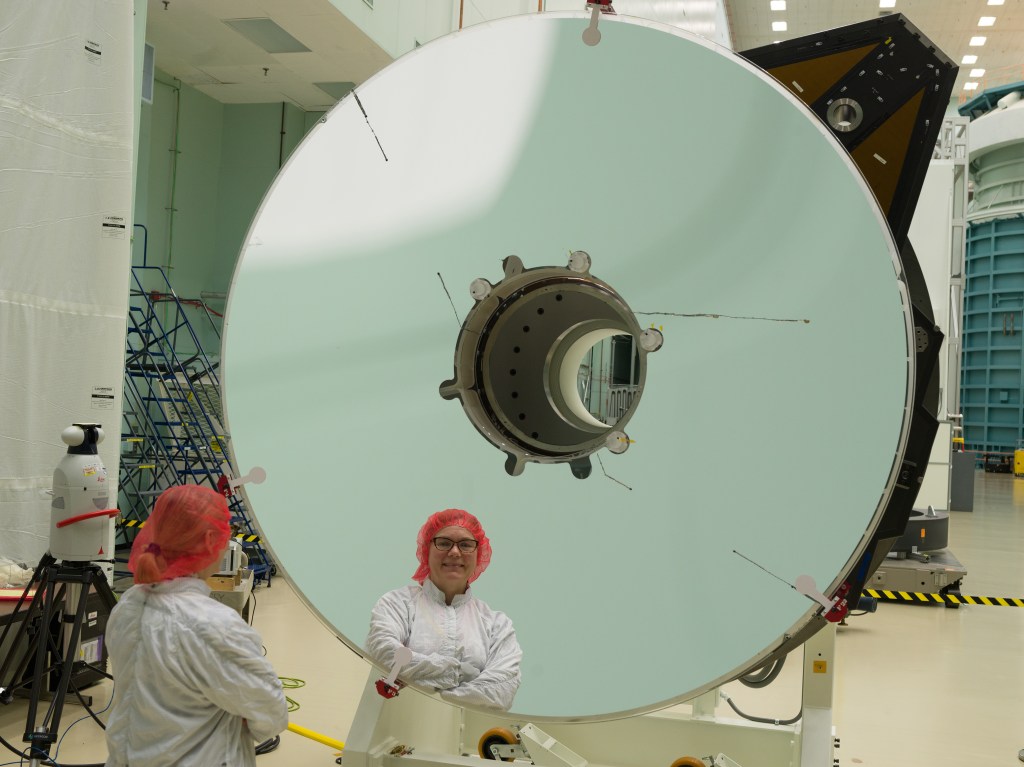
Bente Eegholm: Ensuring Space Telescopes Have Stellar Vision
“It motivates me to support a great purpose, pioneer technology for spaceflight, and to conquer the challenges that inevitably occur along the way.”
Communications and Outreach
Meet the team who helps bring Roman's news and progress to the public.

Social Media Lead Courtney Lee
“I wanted to create a game because right now, a lot of what we [at NASA] make is geared toward people who already know science…But there are huge audiences out there who, like me, didn't realize that they could love or be intrigued with NASA because it was never where they were."

Technical Photographer Jolearra Tshiteya
"I believe you always end up where you need to be and that everybody can make things happen for themselves. They just have to be creative in how they think and how they approach situations. You belong wherever you think you belong."

Public Affairs Officer Claire Andreoli
"I work with scientists and help them craft the stories they want to share. Science, and astrophysics in particular, is fascinating but can deal with concepts that are difficult to grasp, let alone explain."
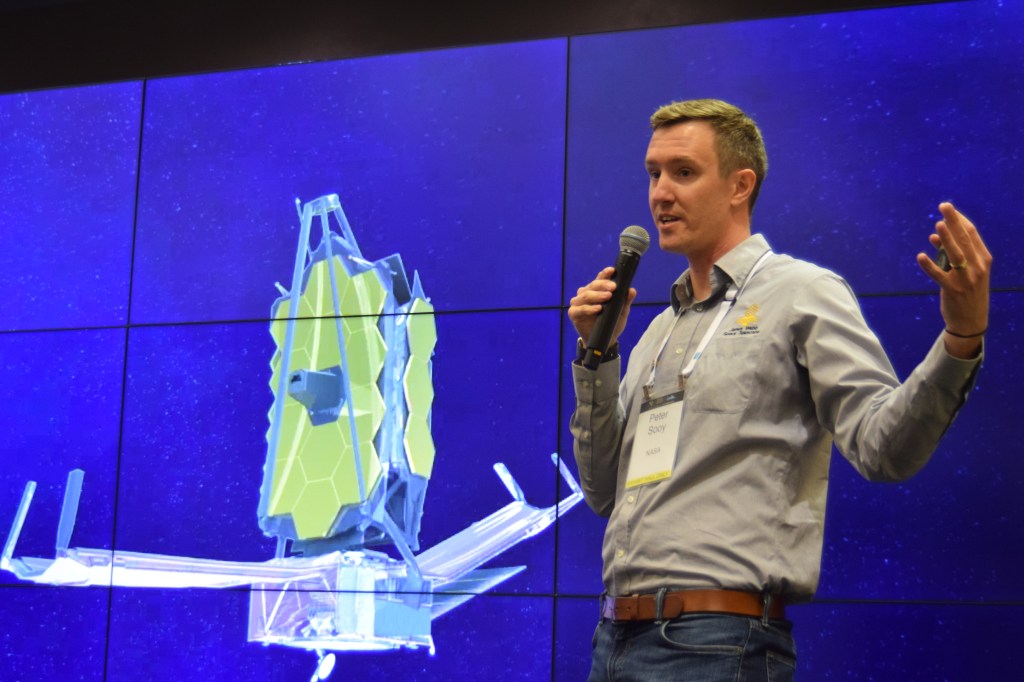
Outreach Lead Peter Sooy
“When it comes to outreach, you can have an interaction that will help shape a kid’s future, or open a person’s eyes to the importance of space exploration. I try to be very conscious about how I am presenting NASA and these missions to the public.”
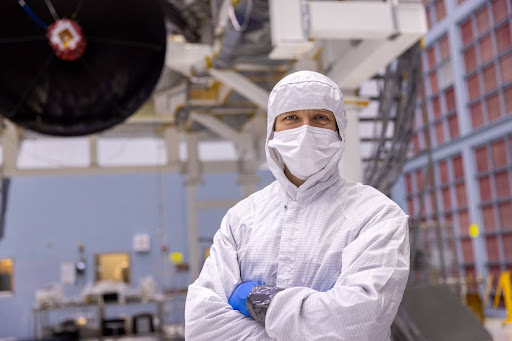
Senior Multimedia Producer Scott Wiessinger
“I always want to showcase science in a way that helps people really understand what’s going on. I try to make sure the narration and visuals both teach.”

Communications Intern Laine Havens
“Every day here at NASA is inspiring. I’ve gotten to work on so many projects, from science writing and social media to video production and leading tours."




















